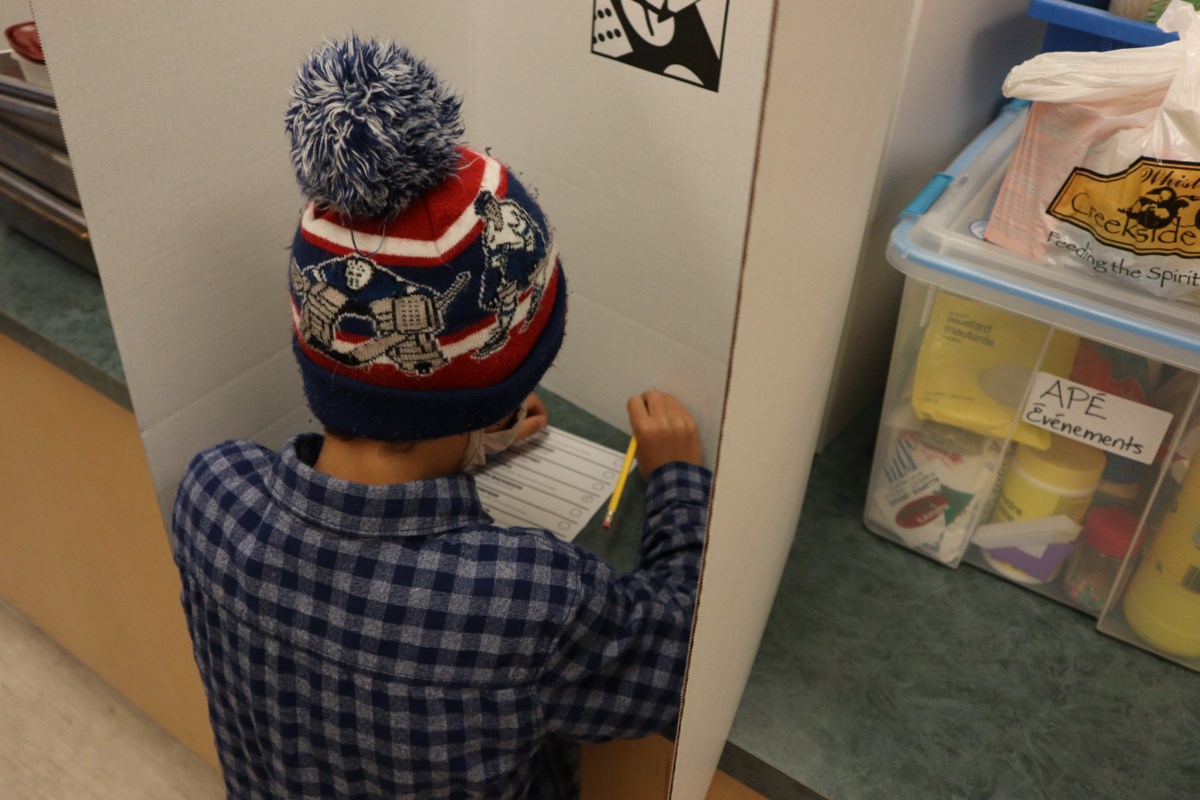Whistler School Participates in Student Voting Program
[ad_1]
A grade 7 class at Spring Creek Community School organized a mock polling station at their school as part of their student voting program.
Grade 7 students at Spring Creek Community School in Whistler have spent the last two weeks learning about the electoral process before holding their own student polling station on Election Day.
French immersion teacher Jane Millen first introduced the CIVIX program at school about 6 years ago to engage students and learn politics in a fun and interactive way.
“I love politics and I love following it… I think that makes it special when you actually have the polling station. I tried to put it in place to try to make it formal, and I think that makes it more real, â€Millen said.
“As a teacher, what excites me is raising engaged, responsible, healthy and happy citizens and so that’s part of the commitment. So I think as they get older they will continue and some of them, I hope all of them will vote in the future as adults, so that’s pretty inspiring.
Over the past few years, Millen has even gone so far as to organize mock debates with students acting in place of the leaders, but with this year’s election turning around quickly, they didn’t have enough time for things to happen. extra and had to stick to the basics of learning about political parties and their platforms and running a polling station for students at school.
But although they only had a brief introduction to the voting process, the grade 7 students were all delighted to feel that they were part of the voting process.
“I think it’s really cool that the students get the chance to vote, even if it doesn’t count for the actual votes. It always teaches them politics and it might inspire other people, other adults to vote or to think maybe I should vote too because every vote counts, â€said student Cole Bonnell.
“It gives the impression that it’s a bit important, it feels like we’re almost adults. Even though we are still in 7th grade, it feels like we can have a voice.
Overall, Millen said she wanted to instill the habit of voting in her students, but also that they be engaged and informed about who the political leaders are and what their platforms offer, as well as to be able to justify themselves who they end up. vote for.
And after speaking to a group of students who had volunteered to run the polling station, it looks like Millen’s goal is coming to fruition, as the students have noticed how much their fellow students’ opinions and process classes have changed since they last voted in 5th grade.
“When we were in grade 5, we got the students to vote, but a lot of people thought the Green Party was all about the environment and they all voted for it, but a lot of people I’ve talked to now , have dived a little deeper and now they’re voting a little differently than they did back then, â€said Mason Foose, who then gave an example of the platform policies that have marked him all. throughout the process.
“The NDP will raise taxes for billionaires and lower them for those with less money. I think that’s cool because then billionaires can help and other people who maybe don’t have that much money don’t have to be taxed as much so maybe they can afford a car and a house and that sort of thing.
According to Millen, when watching videos of each of the candidates, the students hated the constant dodging of questions and attacks on other parties that took up a long time in almost every electoral process. But instead of losing interest in politics because of it, it actually made many of them more excited to be able to vote when they are old enough.
“I’m happy to vote because a lot of people right now are simply voting for one party because they’re afraid of another party,†said Olivia Persson. “I’m happy to vote because I want to vote for who I think I’m the best for and not because I’m afraid of another party.”
[ad_2]

